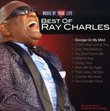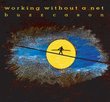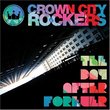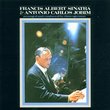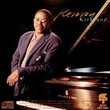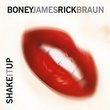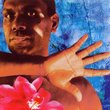| All Artists: Moondog (Louis Thomas Hardin), Weiner-Sabinsky Duo, Moondog Title: Moondog Members Wishing: 5 Total Copies: 0 Label: Ojc Release Date: 7/1/1991 Genres: Dance & Electronic, Jazz, Special Interest, New Age, Pop, Classical Styles: Techno, Avant Garde & Free Jazz, Historical Periods, Modern, 20th, & 21st Century Number of Discs: 1 SwapaCD Credits: 1 UPCs: 025218174121, 0090204064595, 025218174114, 090204064595, 025218174121 |
Search - Moondog (Louis Thomas Hardin), Weiner-Sabinsky Duo, Moondog :: Moondog
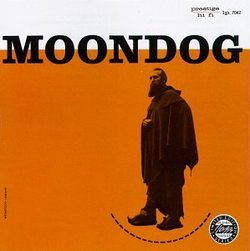 | Moondog (Louis Thomas Hardin), Weiner-Sabinsky Duo, Moondog Moondog Genres: Dance & Electronic, Jazz, Special Interest, New Age, Pop, Classical
Louis Hardin, known to pre-Watergate New Yorkers as the blind street musician Moondog, is also a fascinating and sui generis composer. This disc collects 1969 recordings of his orchestral works and 1972 small-group recordi... more » |
Larger Image |
CD DetailsSynopsis
Amazon.com Louis Hardin, known to pre-Watergate New Yorkers as the blind street musician Moondog, is also a fascinating and sui generis composer. This disc collects 1969 recordings of his orchestral works and 1972 small-group recordings of the two-minutes-and-under "rounds and canons" that are his most influential work. Janis Joplin covered his "All Is Loneliness," you can hear foreshadowings of Stereolab in his "Madrigals," and you only need to hear "Theme" to hear how profoundly he influenced Michael Nyman. Simple and beautiful, Moondog's rounds owe as much to the swing he heard on the radio in his youth as to Bach's canonical structures, and they vary as little and as much as roses in a row. --Douglas Wolk Similar CDs
Similarly Requested CDs
|
CD ReviewsEccentric Centrist Dion Wright | Flagstaff, AZ | 12/13/2003 (5 out of 5 stars) "Odd-ball individuals are more common than geniuses, but Moondog is both. Harry Partch had the highest regard for this blind graduate of Julliard, whose fantastic get-up of skins, furs and horns might have detracted from the impact of less seminal music. Since he was immensely tall, he made quite an apparition. Moondog's primitivo get-up was odd, to say the least, but since Moondog was blind, one wonders who put the costume together. Moondog, like Harry, invented most of the instruments he played standing on the corener at the Avenue of the Americas. His music reaches back into prehistory in its effect, and has a kindness to it, if that may be a reasonable thing to say. Later, Moondog became sort of a darling of the avant garde, and composed for traditional instruments, but the earlier the recorded work, the more deep down and pure it was. The later work is slicker, but just as intelligent." Admirable communion with life Jacques COULARDEAU | OLLIERGUES France | 04/26/2007 (5 out of 5 stars) "Blind he is our Moondog, but he does not bark for pity. He listens to and reproduces what he can capture with his ears. That means his work is a tremendous compilation of sounds from the real world, animals or just insects, his own baby and his own wife, or just some beating on a drum, or the frail dancing of a pipe along with a frog and a cricket. It is this extreme patchwork of sounds, voices, noise and music under the light enchantment from the moon that our artist is imagining in his eternal night. At least for him the moon never sets, never disappears over or behind the hills. "Surf Session" is the only piece that has some real length. The sea surf, the sea waves, the breaking of these waves we imagine along some pebbly seaside give a strange depth to the very both Asian and tremendously romantic music that manages to float forever over the rather powerful vortex of the sea, the ocean. The nearly Chinese constant grace-notes give the music a charm that is both discrete and so strong we seem to be able to imagine some Last Emperor advancing in the Forbidden City just before defeating his beleaguered wife and sons under the sign of some golden flower. The "Street Scene" is less fascinating because it is aimless, it lacks a direction and a destination? "I must never follow you and you must never follow me." He is roaming on and on, around and around, in that incessant, menacing, mechanical noise that comes up from the New York street locked up in between the walls of surrounding buildings. Can that be life? And what can it sound like to a blind man? Is it worse or less violent than what the famous Arthur Miller's Salesman felt, heard and experienced in his trapped two storied house in the middle of surrounding skyscrapers and under the crushing noise of thousands of motor vehicles? We will never know, except if we decide to do what dipus did when he realized his criminal inability to see the fate that was his. And he lived ever after like a dog in the eternal night of his blindness remembering the moonshine and the sunshine, tolerating the insults and petty assaults from those whose yes are not bleeding dead.
Dr Jacques COULARDEAU, University Paris Dauphine & University Paris 1 Pantheon Sorbonne " |

 Track Listings (14) - Disc #1
Track Listings (14) - Disc #1